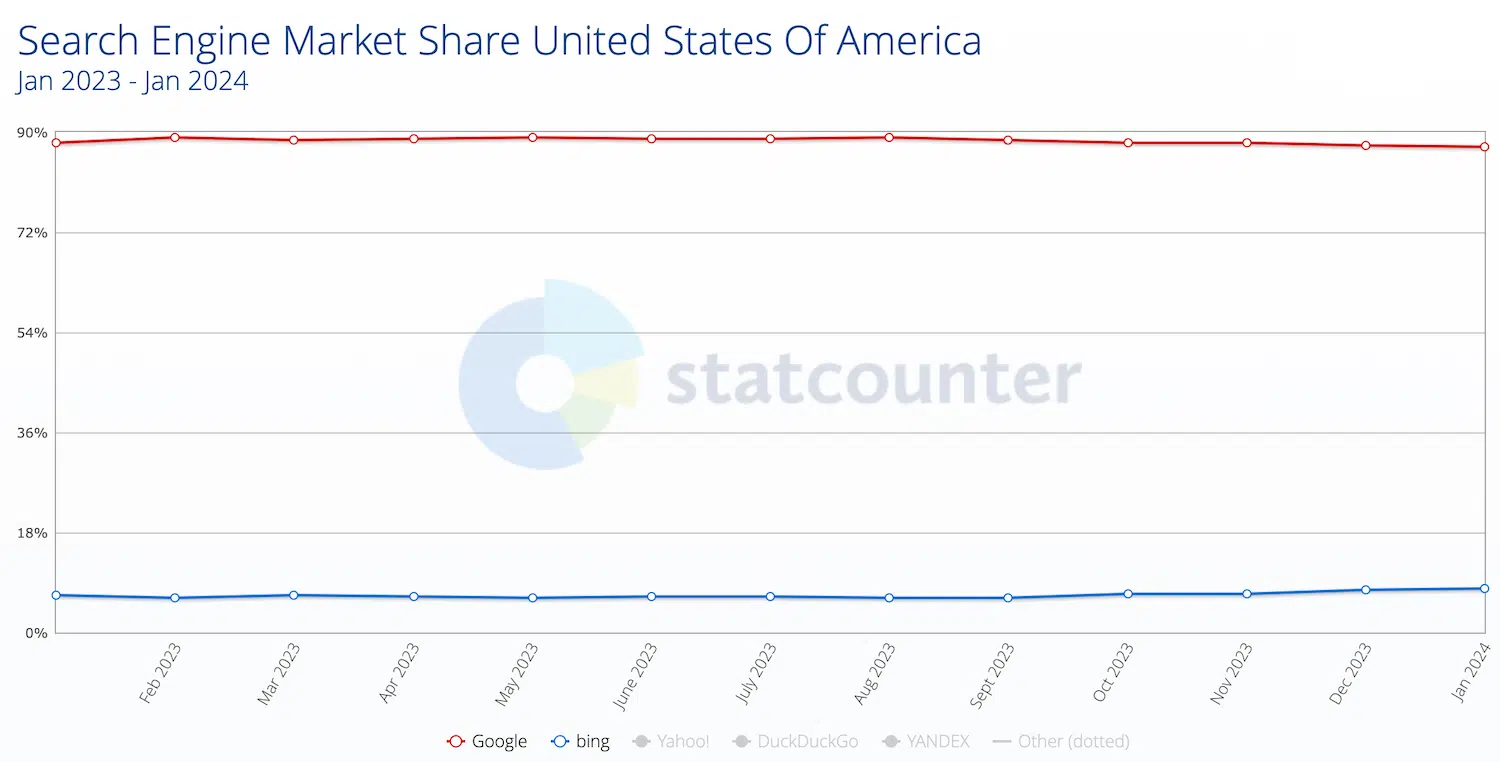Despite lots of hype and hope from Microsoft, Google still dominates search – though Bing has made tiny gains in the U.S. and worldwide.
Microsoft Bing managed to steal a tiny bit of Google’s search market share in the last year in the U.S., even less globally. But make no mistake – Google remains the dominant search engine.
This despite the launch of the new Bing, powered by ChatGPT designed for Search, one year ago, which many believed could ignite a true contender to challenge Google. Instead, the search market remains essentially at status quo.
By the numbers. Here are the number of search engine referrals over the last year (comparing February 2023 to January 2024 full month data), according to StatCounter:
- Microsoft Bing’s U.S. search market share rose to 7.87%, from 6.35% (+1.52). Worldwide, Bing’s search market share increased from 2.81% to 3.43% (+0.62).
- Google’s U.S. search market share declined, from 88.96% to 87.46% (-1.5). Worldwide, Google’s search market share decreased from 93.37% to 91.47% (-1.9).
This data indicates Microsoft Bing and Google essentially swapped 1.5 percentage points in the U.S. Meanwhile, worldwide, Google lost nearly 2 percentage points – however, Microsoft Bing only gained less than a percentage point of that.
But. Microsoft once said stealing 1 percentage point of search can mean an additional $2 billion of new search revenue for Microsoft.
It’s hard to know if that revenue actually materialized because Microsoft only reports percentages in its earnings reports. However, Microsoft did report an 8% increase in Search and News Advertising revenue on Jan. 30 and on the earnings call Microsoft’s Chief Financial Officer Amy Hood reported “higher search volume.”
Meanwhile. Google responded to the new Bing by launching its Search Generative Experience, which remains an experiment in Labs. Google also unveiled its Gemini model in December, which is now in Bard, used in SGE and will soon be baked into Google Search soon.


